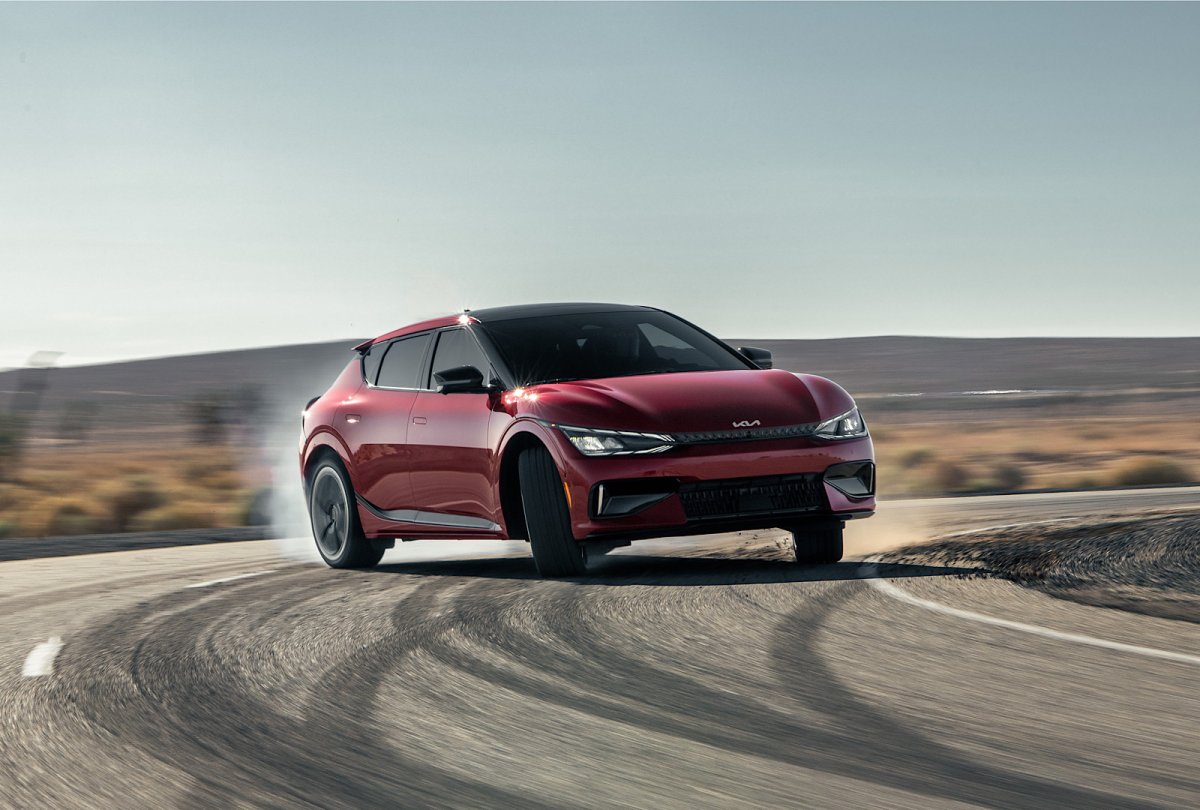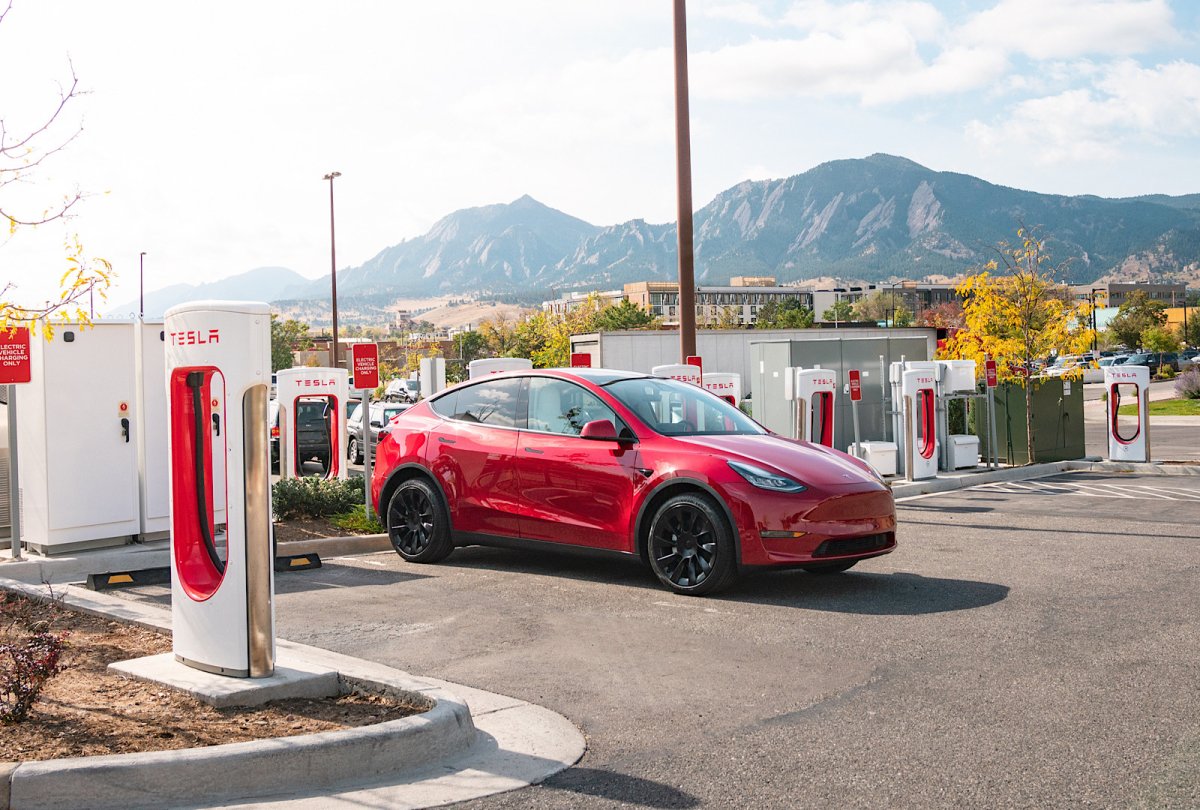The first electrified cars of the modern era were sluggish machines that focused primarily on efficiency. When Tesla debuted the Model S in 2012, perceptions of electric vehicles (EV) started to change. The most basic Model S was as fast as a hot rod and the high-end version that came a few years later put most supercar acceleration to shame.
Now almost all manufacturers have electrified (hybrid, plug-in hybrid or battery-electric) vehicles on sale, and many are wildly quicker than their gas-powered counterparts.
Teen and new drivers don't have the experience to control Lamborghini-like acceleration and the mannerisms of a vehicle that come to play, like torque steer, when quick movement is underway.
Electric vehicles accelerate so fast because the electric motors that power them can output 100 percent of their torque from a stop. A gasoline engine must build revolutions per minute to produce its maximum power and torque. Certain programming can change EV torque outputs, but part of the allure of most EVs is their steep linear acceleration, and they come designed from that straight from the manufacturer.

Gridserve, a UK-based company that produces sustainable energy, did a study on EVs finding that a $72,322 Tesla Model 3 Performance sedan can outrun 90 percent of gas-powered performance cars, which typically retail for double the price, if not more. The all-wheel drive electric sedan sprints from zero to 60 mph in 3.2 seconds.
The Kia EV6 GT, at $78,127, is nearly as quick, with the ability to outrun some Ferraris and McLarens.
Even the slowest EVs out-accelerated 43 percent of internal combustion engine (ICE) performance cars.
"Fast-accelerating cars are indeed a risk for novice drivers; they may be more tempted to explore such vehicles' performance capabilities. This is why AAA recommends for novice drivers a traditional passenger sedan with moderate power, such as a four-cylinder engine or similar," Dr. William Van Tassel, manager of driver's training programs at AAA told Newsweek.
"Plus, controlling the throttle of a high-power vehicle can be difficult for drivers of any age; they can end up going much faster than they intended, way beyond a safe speed. One result of the availability of EVs is that we are now also having to teach that if drivers do a lot of fast accelerating they will be out of power soon--don't want that," he said.

Reaction time is less important, Van Tassel said, though young drivers have it best. But it's more critical for novice drivers to learn where potential hazards might be in the traffic scene, so that they can respond ahead of time.
AAA has integrated a full training program on hazard detection into both its classroom and online versions of its How to Drive novice driver education curriculum-to accelerate novice drivers' awareness of where potential hazards can be located, and how to respond in advance.
"Teens are better [with reaction time], but you need a basis to judge things from, they don't have that experience. They'll get better, and health is more important than age for losing reaction time," Brett Robinson, executive director of the American Driver and Traffic Safety Education Association (ADTSEA) told Newsweek.
"Though there are plenty of other factors that affect reaction time including drugs and alcohol, and sleepiness. Teens have different schedules with sports and clubs and often don't get enough sleep. But even with good reaction time, there's a point of indecision without experience," Robinson said.

Benny Malburg, owner of Official Driving School, a traditional brick-and-mortar driver's training school in Royal Oak, Michigan, thinks there hasn't been enough thought on how to make an EV for new drivers. He notes that they're flashy, cool and fast--he even owns one--but agrees they pose issues for teen drivers.
"New drivers experience what we call overloading when they start driving. Their brains must get used to paying attention to hazards, steering, braking, gaps in traffic, and speed control all at once. After you've been driving awhile, a lot of this becomes second nature, but not for the new driver," Malburg told Newsweek.
"With EVs we usually have a larger screen with more things to play with, and cars that accelerate at incredible speeds that most new drivers are not prepared for. On top of that, the autonomy of EVs, while great for experienced drivers, leads to a lack of skill development in new drivers compared to those learning with an ICE vehicle."
Malburg notes that many cars now have speed caps and other restrictions that parents can place on vehicles in order to ensure their teens are as safe as possible. He would like to see those in EVs for both limiting distractions and toning down some of the torque on some of these vehicles.
Ford offers its Mustang Mach-E EV with MyKey, a programmable key fob that can limit things like radio volume and top speed, though it still allows the driver to accelerate at full blast, which is 3.5 seconds to 60 mph in the Mach-E GT. It does stop kids from reducing the traction control, certainly a tempting function for risk seekers.
General Motors vehicles have Teen Driver software that has a Buckle to Drive feature, which mutes audio until front-seat occupants are buckled and automatically turns on available active safety technologies. It also features a report card out your teen's driving so parents can identify potential problem areas.
Tesla, America's top EV seller, does not offer similar software, though owners can set speed limits for the cars.
"Today's teens need to receive some portion of training on EVs because things feel different in electric vehicles. It's the key to teens' safety. They will probably drive every day of their life, it's an essential skill," said Robinson.
Uncommon Knowledge
Newsweek is committed to challenging conventional wisdom and finding connections in the search for common ground.
Newsweek is committed to challenging conventional wisdom and finding connections in the search for common ground.
About the writer
Jake Lingeman is the Managing Editor for the Autos team at Newsweek. He has previously worked for Autoweek, The Detroit ... Read more
To read how Newsweek uses AI as a newsroom tool, Click here.








